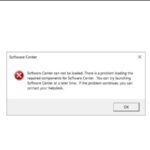CRM Contact Center: The Ultimate Guide to Customer Engagement
What is a CRM Contact Center?
A CRM contact center is a centralized hub for all customer interactions, powered by a robust CRM system. It allows businesses to manage and track interactions across various channels, such as phone, email, chat, social media, and more. By integrating with the CRM database, contact centers gain access to comprehensive customer profiles, purchase history, and preferences, enabling them to provide personalized and efficient service.
Key Features of a CRM Contact Center
- Unified Customer View: A 360-degree view of each customer, encompassing all interactions, demographics, and purchase history.
- Automated Routing and Queue Management: Efficiently directing calls and requests to the appropriate agent based on skills and availability.
- Interactive Voice Response (IVR): Self-service options that allow customers to resolve simple queries without agent interaction.
- Live Chat and Messaging: Real-time communication channels for quick and convenient customer support.
- Email Management: Streamlined email handling, tracking, and automated responses for faster resolution.
- Reporting and Analytics: Comprehensive insights into customer behavior, agent performance, and contact center efficiency.
Benefits of Implementing a CRM Contact Center
Improved Customer Experience
- Personalized Interactions: Tailored responses based on individual customer needs and preferences.
- Faster Resolution Times: Quick access to customer information and relevant solutions.
- Proactive Engagement: Identifying and addressing potential issues before they escalate.
- Consistent Service: Maintaining a high standard of customer service across all channels.
Enhanced Efficiency and Productivity
- Automated Processes: Streamlining tasks like routing, scheduling, and reporting.
- Agent Empowerment: Access to comprehensive customer information and tools for faster problem-solving.
- Reduced Costs: Optimizing resource allocation and minimizing unnecessary interactions.
Increased Revenue and Loyalty
- Improved Customer Satisfaction: Leading to higher retention rates and repeat business.
- Cross-Selling and Up-Selling Opportunities: Identifying and promoting relevant products and services based on customer data.
- Stronger Brand Reputation: Establishing a reputation for exceptional customer service and support.
Key Considerations for Choosing a CRM Contact Center Solution
1. Scalability and Flexibility
Ensure the chosen solution can accommodate future growth and evolving customer needs.
2. Integration Capabilities
Seamless integration with existing CRM and business systems for a unified customer view.
3. Functionality and Features
Evaluate the specific features required, such as IVR, live chat, and reporting tools.
4. Security and Compliance
Prioritize solutions that adhere to industry regulations and safeguard sensitive customer data.
5. Pricing and Support
Compare pricing models and evaluate the level of support offered by the vendor.
Best Practices for CRM Contact Center Management
1. Define Clear Goals and Objectives
Establish specific, measurable, achievable, relevant, and time-bound (SMART) goals for the contact center.
2. Implement a Robust Training Program
Provide agents with comprehensive training on the CRM system, customer service best practices, and product knowledge.
3. Use Data to Drive Continuous Improvement
Regularly analyze performance metrics, identify areas for improvement, and make data-driven decisions.
4. Foster a Customer-Centric Culture
Promote a culture of empathy, responsiveness, and proactive problem-solving within the contact center team.
5. Embrace Emerging Technologies
Stay ahead of the curve by adopting new technologies, such as AI-powered chatbots and omnichannel communication tools.
Conclusion
A CRM contact center is an indispensable tool for businesses seeking to enhance customer engagement, drive revenue growth, and establish a competitive advantage. By leveraging a robust CRM system, integrating various communication channels, and adopting best practices, organizations can create a seamless and personalized customer experience that fosters loyalty and drives long-term success.







